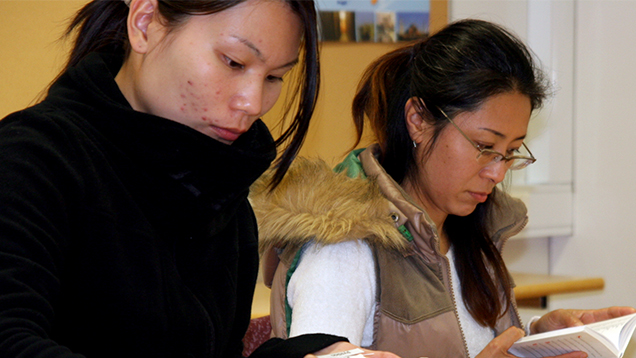Report: Integration programmes increase cooperation but need more targets

Municipal integration programmes increase cooperation and commit decision-makers to promotion of integration. However, the programmes would benefit from performance targets and increased monitoring of such targets, according to a report by Innolink Group and the Migration Institute of Finland.
The preparation of integration programmes strengthens regional cooperation between municipalities, different sectors and different authorities. The content and purpose of municipal programmes differ, especially as regards the type of programme, i.e. whether it is a target programme, a description of services or a cross between them, the report says.
If objectives are included at all, their setting and monitoring focus on measures rather than on monitoring the promotion of integration. In many municipalities, measuring the progress of integration is not sufficiently concrete, or in the worst case, there is not even an attempt to monitor integration and assess the effectiveness of measures.
Municipalities need clearer guidance in preparation of programmes
The report on the integration programmes of municipalities was commissioned by the Ministry of Economic Affairs and Employment and produced by Innolink Group and the Migration Institute of Finland. Its results will be used in the reform of the Integration Act, following the release of the report on integration.
According to the report, municipalities do not always have the competence or resources to carry out demanding target-oriented programmes. If the future legislation requires municipal integration programmes, municipalities will need more support and more detailed instructions for such programmes.
Some municipalities have also expressed the wish for common integration indicators. On the other hand, the differences between municipalities make the drafting of uniform guidelines difficult.
Integration programmes should be integrated into municipal strategies
Most municipalities find integration programmes useful, because they facilitate the exchange of information, stir discussion and increase cooperation. In order to increase the usefulness and impact of the programmes, they should, however, be more closely linked to the strategic activities of municipalities, according to the report.
Municipalities should also increase the monitoring of targets and involve immigrants and other residents in the preparation of the programmes. Central government, on the other hand, should clarify the guidelines for integration programmes, organise training for municipalities and provide support for monitoring integration.
Inquiries:
Antti Kaihovaara, Senior Specialist, Ministry of Economic Affairs and Employment, tel. +358 295 047 125
Suomalainen hätäkeskustoiminta herättää kansainvälistä kiinnostusta
Suomen ainutlaatuinen malli tuottaa hätäkeskuspalveluita houkuttelee vuosittain useita kansainvälisiä vieraita seuraamaan hätäkeskustoiminnan arkea. Kustannustehokkaasta ja avun nopean hälyttämisen mahdollistavasta mallista halutaan ottaa mallia maailmalla.
Hätänumeron esteettömyyteen tulossa parannuksia
Hätätekstiviestipalvelun käyttäjiltä vaadittu rekisteröitymisvelvoite päättyy kesäkuussa 2025. EU:n esteettömyysdirektiivin mukainen reaaliaikainen teksti (RTT) otetaan käyttöön hätäilmoituksen yhteydessä kahden vuoden kuluttua.
Kansainvälinen 112-konferenssi Helsingissä
Euroopan hätänumerojärjestö EENA järjestää konferenssin Helsingin Messukeskuksessa 9.–11. huhtikuuta. Tapahtuma kokoaa yhteen turvallisuuden ja teknologian edustajia ympäri maailmaa.
Ylijohtaja Taito Vainio: toimintavarmuutemme säilyy kaikissa oloissa
Taito Vainio aloitti maaliskuun alussa toisen viisivuotiskautensa Hätäkeskuslaitoksen ylijohtajana. Tulevien vuosien aikana hänen työtä kehystävät toimintaympäristön muutoksen myötä nousevat haasteet.
Tehtävien priorisointi mahdollistaa avun akuutissa hädässä
Hätäkeskuslaitoksen ensihoidon tehtävänkäsittelyohje uudistui marraskuun 2023 lopulla. Muutos näkyy ensihoidon tehtävämäärässä ja kiireellisyysjakaumassa.



